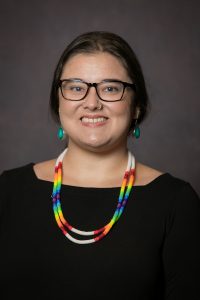
TUSCALOOSA, Ala. — Young sexual minority men do not fully understand their risk for human papillomavirus due to a lack of information from health care providers, according to research involving The University of Alabama.
A study published in the Journal of Community Health examined what young sexual minority men — a high-risk and high-need population that includes gay, bisexual, queer or straight-identified men who have sex with men — know about HPV and the HPV vaccine and how health care providers communicate information about the virus and vaccine.
“By learning about sexual minority men’s diverse health needs and routinely offering the HPV vaccine, we can move toward a health promotion model and not only a disease prevention model,” said Dr. Jessica Jaiswal, UA assistant professor of health science and lead author of the study.
In the study, researchers found that health care providers rarely discuss HPV and the HPV vaccine with patients who are young sexual minority men, and, when they do, their communication is often inadequate in conveying potential risks of HPV and benefits of vaccination.
“Clinicians have a direct role in expanding the availability of LGBTQ-competent healthcare,” said Jaiswal.
Jaiswal analyzed data for the study, which was led by researchers at Rutgers University.
About 79 million Americans are infected with HPV, with about 14 million becoming newly infected each year, according to the Centers for Disease Control and Prevention. As a sexually transmitted infection, HPV can lead to several types of cancer, including anal and penile cancer, and is particularly concerning for sexual minority men due to the high prevalence of HIV and smoking in this community and the low HPV vaccination rates overall among men.
“Particularly in light of the decades-long focus on gay men’s health care as HIV care, there is a missed opportunity for HPV prevention in the community,” said study co-author Caleb LoSchiavo, a doctoral student at the Rutgers School of Public Health.
The researchers, who are members of the Rutgers School of Public Heath’s Center for Health, Identity, Behavior and Prevention Studies, analyzed interviews with sexual minority men in their early 20s in New York City and determined they knew little about HPV infection — including transmission, signs, symptoms and cancer risk — and vaccination.
They also found that the men did not prioritize HPV vaccination due to the incorrect perception that HPV is an issue that exclusively or primarily affected women.
“Everyone who is sexually active — regardless of gender, sexual orientation, partners’ genders, relationship or marital status — should talk to their doctor about receiving the HPV vaccine to prevent a future generation who may develop HPV-related cancers, such as cervical, oral and anal cancer, as we have seen emerging in Baby Boomers and Gen-Xer s,” said Dr. Perry N. Halkitis, dean of Rutgers School of Public Health, CHIBPS director and principal investigator of the study.
The U.S. Food and Drug Administration has expanded the use of HPV vaccine to people between the ages of 27 to 45. Originally, it was prescribed for those between the ages of 9 to 26.
The study was funded by the National Institute of Allergy and Infectious Diseases and the National Institute on Drug Abuse.
Contact
Adam Jones, UA communications, 205-348-4328, adam.jones@ua.edu; Michelle Edelstein, Rutgers public health communications, 732-427-6232, mse46@sph.rutgers.edu
Source
Dr. Jessica Jaiswal, jljaiswal@ches.ua.edu
